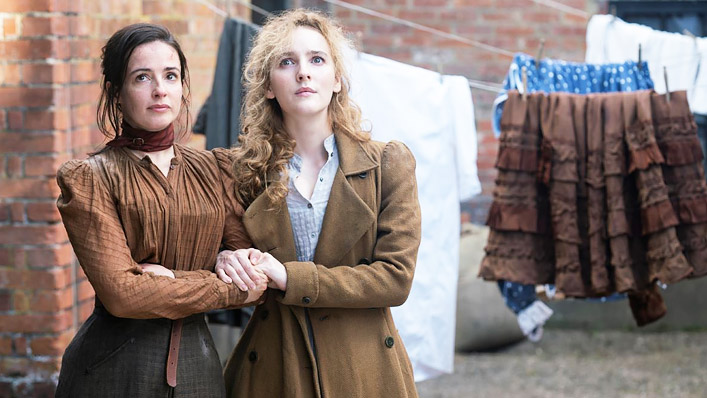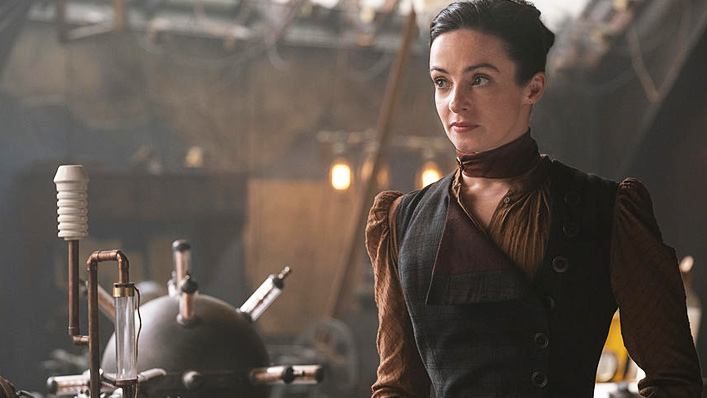Joss Whedon’s supernatural series The Nevers is basically just Marvel mutants in top hats

Popular culture is currently full of magical historical dramas, making the unoriginality of Joss Whedon’s latest series even more apparent. Here’s Travis Johnson’s review.
If nothing else, The Nevers has amply demonstrated that Joss Whedon has outlived his time and is no longer the wunderkind who gave us Buffy.
That’s without even considering the numerous allegations of abusive and manipulative behaviour arrayed against him by a lengthy roster of co-workers (although while we’re mentioning it, Michelle Trachtenberg’s assertion that Whedon was barred from being left alone in a room with her when she was a teenager appearing in Buffy the Vampire Slayer should have been the end of his career). Even if you can divorce the art from the artist, there’s not much to recommend here for any but the most ardent fan of steampunk/historical fantasy/corsets and nice hats. You’ve seen all this before.
See also
* Best new movies & series on BINGE
* All new streaming movies & series
Indeed, The Nevers is pretty much an act of self-plagiarisation. Back in 2007 when he was writing a run of Marvel’s The Runaways comic, Whedon sent that teen super team back in time to encounter a subculture of superpowered beings in early 20th century New York City. Subtract a couple of decades and pour in a mix of British accents, and that’s basically The Nevers, a series set in a 19th century London where people have started randomly developing superpowers.
Some nasty types are kidnapping these “touched” individuals and one particularly unhinged serial killer is knocking them off one by one. Hard-drinking precognitive Amalia True (Laura Donnelly) and her technologically-inclined offsider Penance Adair (Ann Skelly) hare around London in a rather anachronistic hot rod, rescuing them and taking them to the sanctuary orphanage established by wealthy Lavinia Bidlow (Olivia Williams). There they can learn to use their powers for good. Williams’ character isn’t bald but may as well be: this is Victorian X-men for all intents and purposes.
Which is not particularly original, even within Whedon’s own canon. And certainly not in the current pop culture climate, where we’ve just had The Irregulars, will soon be seeing a second season of Carnival Row, and are just about to get Netflix’s Shadow and Bone. If you’re going to do historical-drama-but-magic, you have to do a bit more than put Marvel’s merry mutants in top hats.
Worse, this latest offering demonstrates how little Whedon has developed as a creator over the years. Buffy and Angel and even Firefly have influenced dozens of series, films and books since their heyday (Dollhouse not so much), but while subsequent works have picked up Whedon’s narrative tools and applied them to contemporary mores and issues, Whedon himself seems mired in his ‘90s prime, doing the same thing he’s always done.

And frankly, his brand of broken-bird-with-superpowers feminism is now squicky, given his reported proclivities. When Whedon the man was veiled, his work seemed provocative and progressive; knowing what we now know, it feels like he’s just a middle-aged bloke putting his fetishes up on screen (say what you want about Tarantino, he never pretended his foot fetish was a blow for female empowerment). So, when James Norton moves into view as a voraciously pansexual club owner who blackmails his clients, it doesn’t feel like a great leap forward in terms of representation or even titillation; it just feels predictable and a little sad.
It’s not Norton’s fault; he’s great in the role, and so too are Donnelly and the rest of the cast. The production design is rich, the action well-staged, and while the first episode crams in a few too many plot strands for what is supposed to be a six episode first season, it at least lays it its basic premise and sets up its core characters cleanly and efficiently.
The problem is Whedon doing the same damn thing he’s been doing for almost 30 years and expecting applause. There’s nothing new here, and certainly nothing to indicate that ol’ Joss has learned anything from his recent travails. Our knowledge of him as a creator and a person overshadows any other element of The Nevers, rendering the series dead on arrival.

















